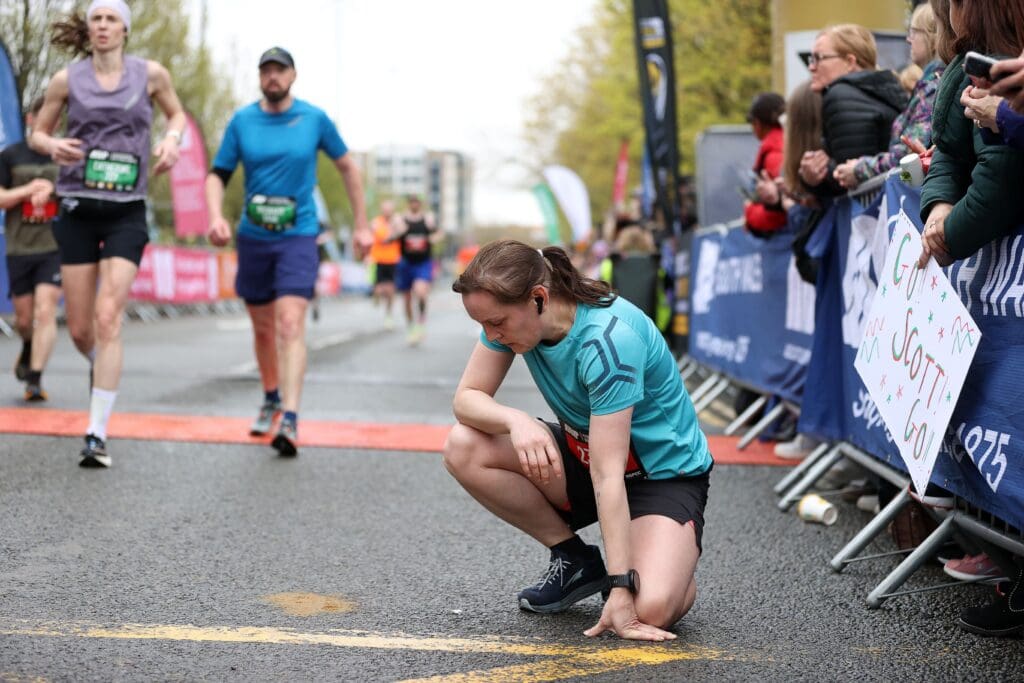You may have heard many runners talk about hitting the dreaded wall while racing and wondered what it meant.
Rather than bumping into a stack of bricks, it refers to a point in a race where it feels really difficult and as if your body can’t continue.
It’s important to understand why this happens and the steps you can take to prevent it, so you can run at your best.
Run 4 Wales Race Director, Steve Brace, who is a double Olympic marathoner, shares his advice:
What does hitting the wall actually mean?
Hitting the wall is a result of insufficient fuelling and your body running out of energy. When the body uses up its natural glycogen stores it then has to resort to fat as an energy source, causing it to work much harder. This usually happens between mile 18-20 in the marathon and makes the rest of the race more difficult.
What does it feel like?
It’s an awful experience and can leave your legs feeling extremely heavy while also feeling as if they’re made of jelly. The finish line will feel like it’s a million miles away.
How do you know it’s happening?
Feeling fatigued, heavy legs, muscle cramps and a lack of focus or concentration are all signs that you could be about to hit the wall. You may also find yourself craving a sweet drink too.
How can you avoid hitting the wall?
Staying hydrated and getting your race nutrition right is key to avoiding your body running on empty. Energy gels, drinks and bars are great for this, and you should look to take on your first bit of fuel around 45 minutes in, followed by every 30-45 minutes thereafter to keep your energy levels topped up. However, make sure you’ve practiced this in your training with your fuel of choice to check it agrees with your body – at the ABP Newport Marathon Festival High5 Energy Gel Aqua will be available.
Carb loading in the lead up to the race and pacing yourself throughout will also help.
It’s important to pace your run and avoid going out too fast as that can deplete your energy store and tire you out with much of the race still ahead. Likewise, ensure you’re realistic with your finish time and ensure you’re not running for a time that your training suggests you’re not capable of. There’s lots of online calculators that can help to predict your finish time based on your recent performances.
Putting in the training and ensuring you have lots of time of your feet, as well as long runs will help prepare your body for what’s to come and help minimise the risk of hitting the wall.
What happens if you do hit the wall?
If you feel this happening to you, slow down or walk if you have to, and take on some fuel. Sipping a sports drink or chewing a sweet can help but be mindful not to overdo it as it could make you feel sick.
If you find yourself hitting a mental wall, remember all your reasons for wanting to take on the race – why you’ve signed up, all of the training you’ve put in and try to think positively – imagine how amazing you’ll feel at the end with your achievement.
Alternatively, you could try to distract yourself by taking in your surroundings, focussing on the crowds or your fellow runners.
However, it’s important not to push yourself into a danger zone. If your mind or body is at the point of no return, don’t force it. Treat this as a learning curve that will help you for your next race.

